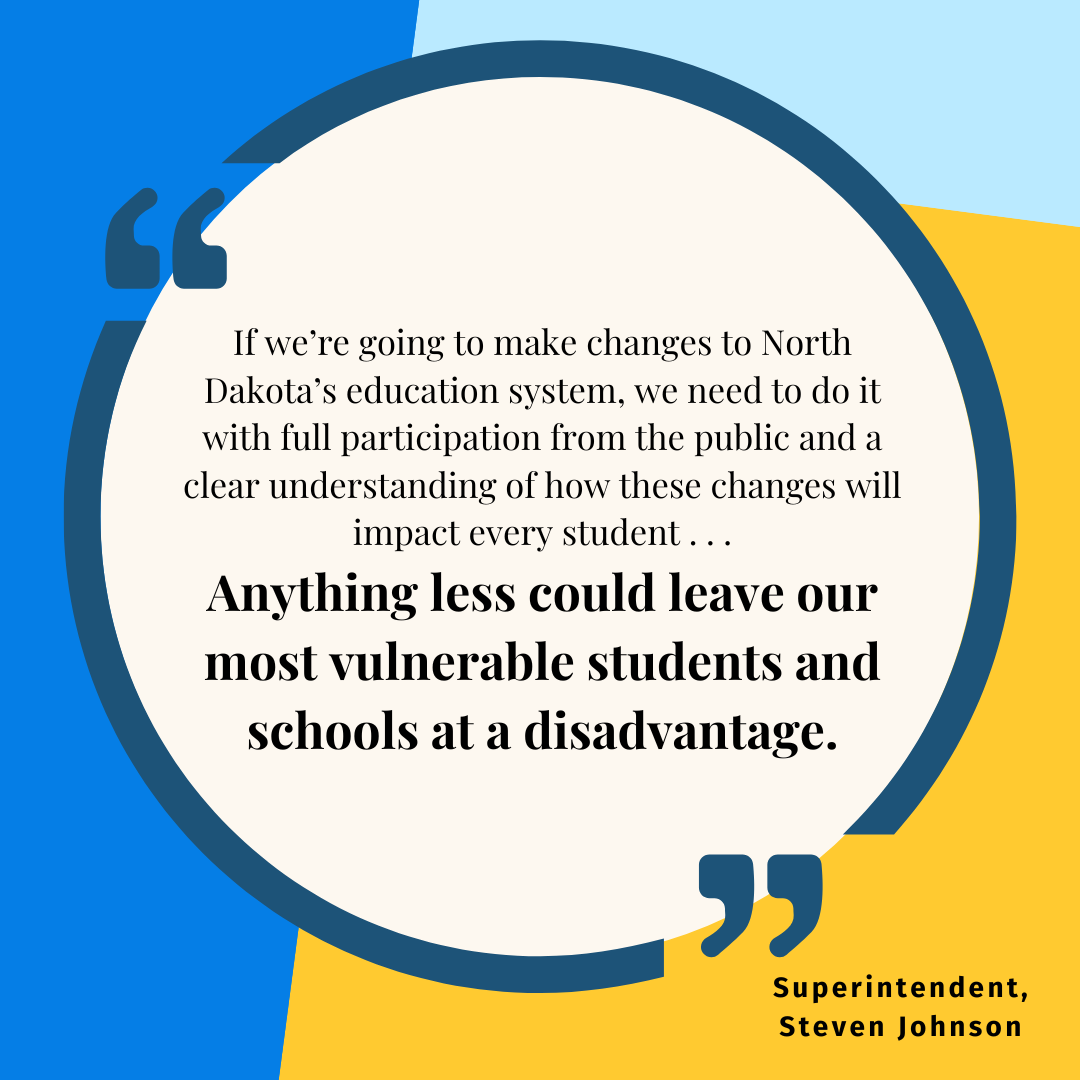Lack of Transparency in School Choice Discussion Undermines Trust

By: Fort Ransom Elementary Superintendent, Steven Johnson
August 20, 2024
An article published on Aug. 15 by Amy Dalrymple brought attention to an issue that should concern all of us in North Dakota’s education community. The ongoing work of the School Choice Task Force is not only about exploring school choice models like charter schools and vouchers but also about how these discussions are taking place — behind closed doors, with little public transparency.
As a superintendent serving a small, rural community, I’ve seen firsthand how important transparency and local control are when it comes to making decisions that affect our schools. Public schools in rural areas like ours are much more than just educational institutions — they are the heart of our communities. They provide stability and opportunity to all students, regardless of background. When significant decisions that could reshape our education system are made without public input, it puts our schools and our communities at risk.
My family has been involved in public education in North Dakota for generations. My grandfather served on the Lisbon Public School Board during the Great Depression, from 1929 to 1937. Those were tough times, and tough decisions had to be made. But those decisions were made locally, by people who knew the community and its needs. My father also served on the Lisbon Public School Board, from 1956 to 1965, during the consolidation of township schools in Ransom County. Again, the decisions were difficult, but they were made by local leaders who were directly accountable to the community.
One of the biggest concerns I have with these privatization models is how they could affect rural schools. In places like Fort Ransom, we already face challenges like declining enrollment, tight budgets, and finding and keeping qualified teachers. Diverting even a small amount of funding to charter schools or voucher programs could have serious consequences — potentially leading to program cuts, school consolidation, or closures. These are real risks for small schools that operate on limited resources.
Local control is a critical part of what makes public schools work in rural communities. Local school boards and administrators know their students and understand the unique challenges they face. When decisions about funding and education policy are made by those who don’t live and work in these communities, the results can be harmful. The risk with school choice models, especially those driven by outside interests, is that they remove decision-making power from the hands of local leaders and place it with entities that may not fully understand the needs of our students.
The article points out that the School Choice Task Force has been meeting in private, with little public notice or input. This lack of transparency is concerning, especially considering the potential impact on the future of our schools. If we’re going to talk about reshaping our education system, these discussions need to be held in the open, with input from educators, parents, and the public. When meetings are held behind closed doors, it undermines the trust that is so important in these kinds of decisions.
The task force is being facilitated by the Hunt Institute, a private consultant. While outside expertise can be valuable, the direction of North Dakota’s education system should remain in the hands of our citizens and elected officials, not private entities. Education is a public good, and decisions that affect our schools should be made with the public’s full participation.
Another important issue is equity. Rural schools serve everyone, regardless of income or background. Privatization models often create a system where access to quality education depends on navigating complex processes or being able to afford additional costs. In rural North Dakota, where geographic and economic challenges already exist, this could make it even harder for some families to get a good education for their children.
While I understand the intent behind exploring school choice is to offer more options to parents and encourage innovation, we must be careful about the unintended consequences. What works in a city like Fargo may not work in smaller towns like ours. These policies could end up doing more harm than good in rural communities.
Read the full article here.
